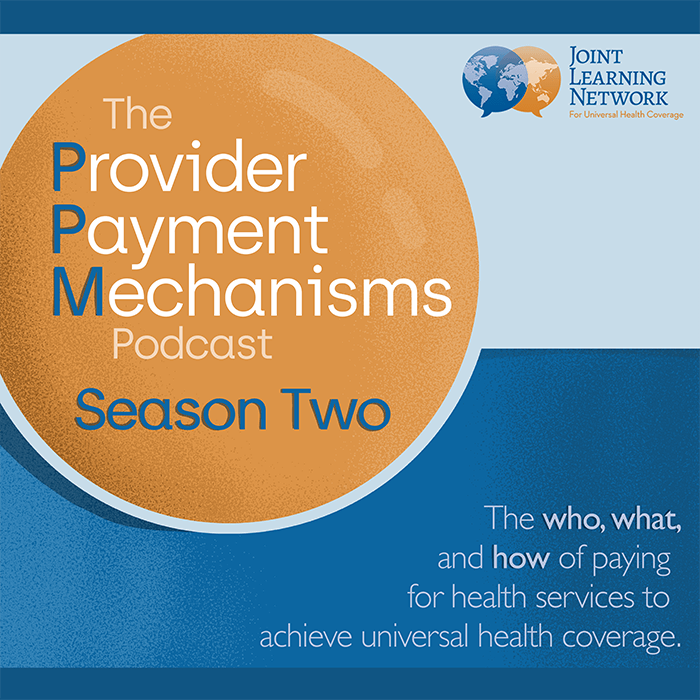The Challenge
Globally, over three billion people — many of them in the poorest half of the world’s population — must pay out of pocket for health services. As a result of health care expenditures, many are forced to choose between paying debilitating portions of their available income or going without needed services, perpetuating a vicious cycle of sickness and poverty. Numerous countries are experimenting with models for moving towards universal health coverage (UHC) to protect against financial risk, increase access to health services and improve health outcomes. However, they must overcome a number of design and technical challenges to achieve UHC particularly in low and middle-income countries, such as the prevalence of large informal sector populations, limited available sources of revenue generation, and varying political landscape that can make reforms difficult to implement.
The Opportunity
As more and more countries are making commitments to achieve UHC, inspired by the global movement toward the universal health goal, the lack of information on the practical how to’s of health systems reforms is proving to be a major stumbling block. The global health community offers ample knowledge on the reforms needed to move toward UHC, but not on how to get there. While many countries have made progress on various fronts, the experiences have not been captured. Implementation knowledge has remained tacit with the policy-makers and practitioners.
The Joint Learning Network for Universal Health Coverage (JLN) is uniquely positioned in the global health space as a community of policymakers and practitioners from around the world actively engaged in co-developing pragmatic solutions to implementing UHC reforms through practitioner-to-practitioner learning. The resulting tools, harnessing the practitioners’ joint tacit knowledge, expertise and experiences, are equipping countries with the how-to’s of designing efficient, equitable and sustainable healthcare systems, while contributing to the global knowledge resource for achieving UHC.
Starting out in 2010 with six countries, the JLN has grown to include 30 member countries and a thriving community of policymakers and practitioners committed to the goal of UHC. Over the course, the learning exchanges have led to close to 50 knowledge products and tools that countries can tailor and adapt to their UHC landscapes.
Our Work
R4D has been one of the core partners of the JLN since its inception in 2010, involved in conceptualizing, shaping and developing the network in partnership with the JLN’s founding member countries and ACCESS Health International, GIZ, Rockefeller Foundation and World Bank.
Since inception, the JLN has expanded to 30 countries that have adapted several resources produced through joint learning. These materials/toolkits have helped assist in their goal towards universal health coverage. A few of these useful resources include:
- UHC-PHC Self-Assessment Tool — Designed to help document and assess interactions between health financing actors & policies and PHC actors & goals. This was piloted in 4 countries and helped countries develop concrete next steps.
- Engaging the Private Sector in PHC for UHC — This resource provides a step by step guide on improving initial communications and partnership around PHC, provider mapping etc.
- Using Data Analytics to Monitor Health Provider Payment Systems — This new monitoring toolkit empowers countries to track provider payment systems
As Network Coordinator for the JLN until 2018, R4D provided strategic support to the network’s governance, implementation and operations. Its tasks included engagement of country members, coordination of technical partners, membership services, knowledge management, communications and monitoring and evaluation.
As the technical facilitator of the JLN Provider Payment Mechanisms technical initiative, R4D also produced a podcast series, “Provider Payment Mechanisms Podcast,” in collaboration with technical experts and implementers from over 14 countries. The goal of this series was to create an accessible learning tool that captured insights and experiences of global experts in the voices of implementors themselves. Season One explored joint learning, provider payment mechanisms, health benefits packages, and costing of health services. Season Two explored strategic purchasing — the who, what and how of paying for health services to achieve universal health coverage.
R4D also brings technical expertise to cross-country learning exchanges on specialized topics to supplement practitioner-to-practitioner learning. R4D health experts play a unique role as technical facilitators by helping countries frame problems, identify commonalities and identify insights and knowledge to synthesize practical solutions that are both country specific and globally adaptable. The learnings are contributing pragmatic tools to the global knowledge resource to accelerate UHC.
With the success of the JLN model, R4D is taking its experience of building and managing country-driven collaborative learning platforms to other sectors such as education and nutrition.















